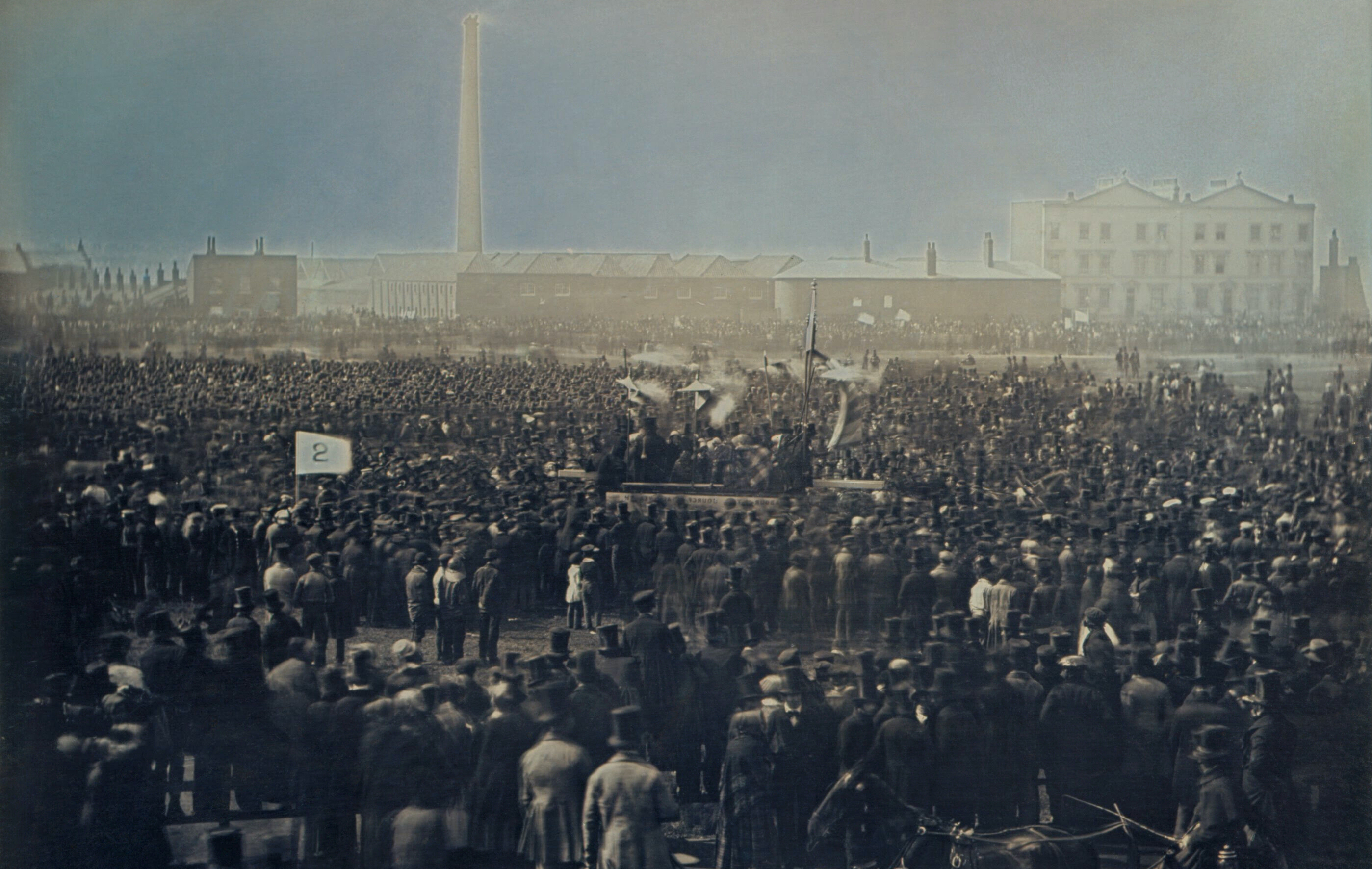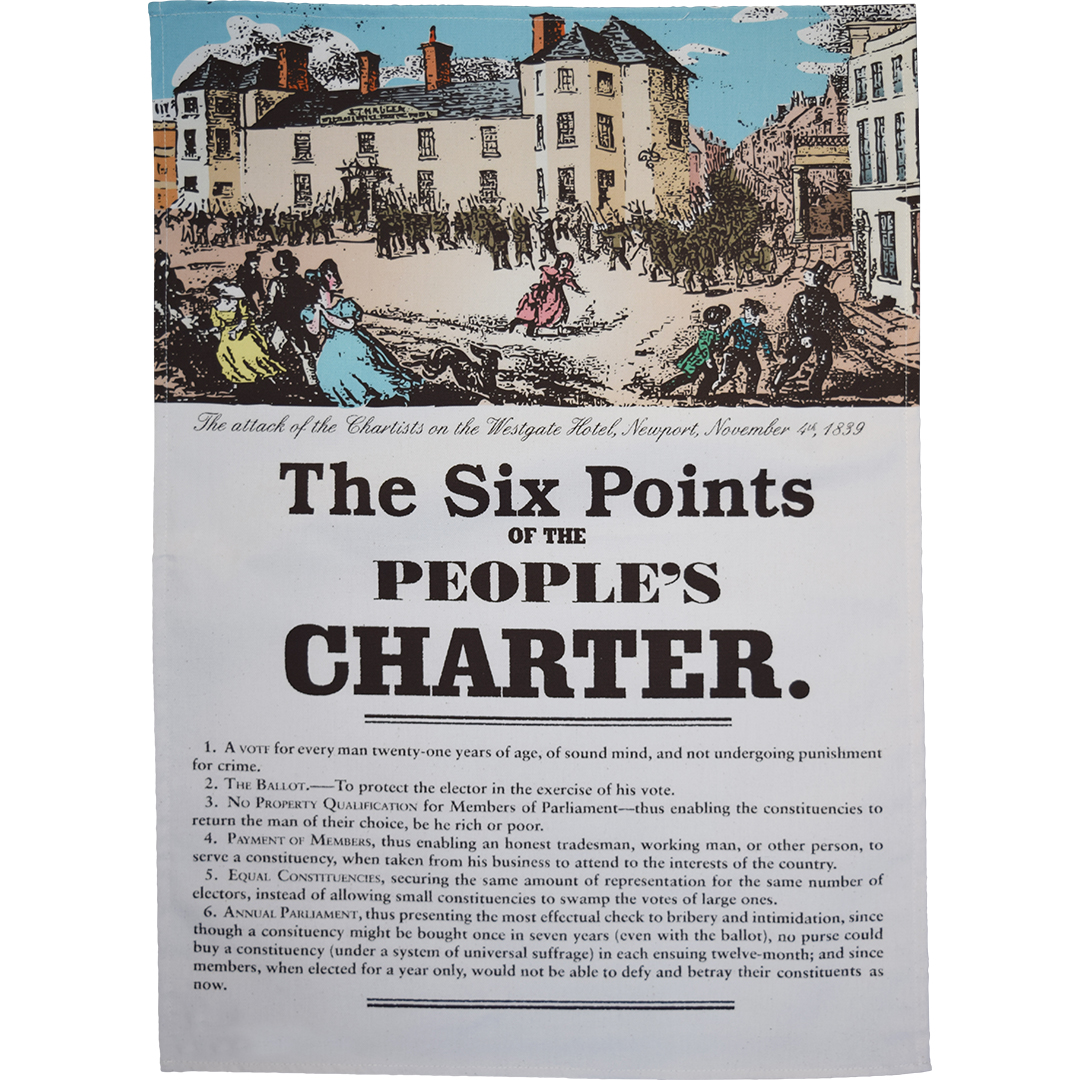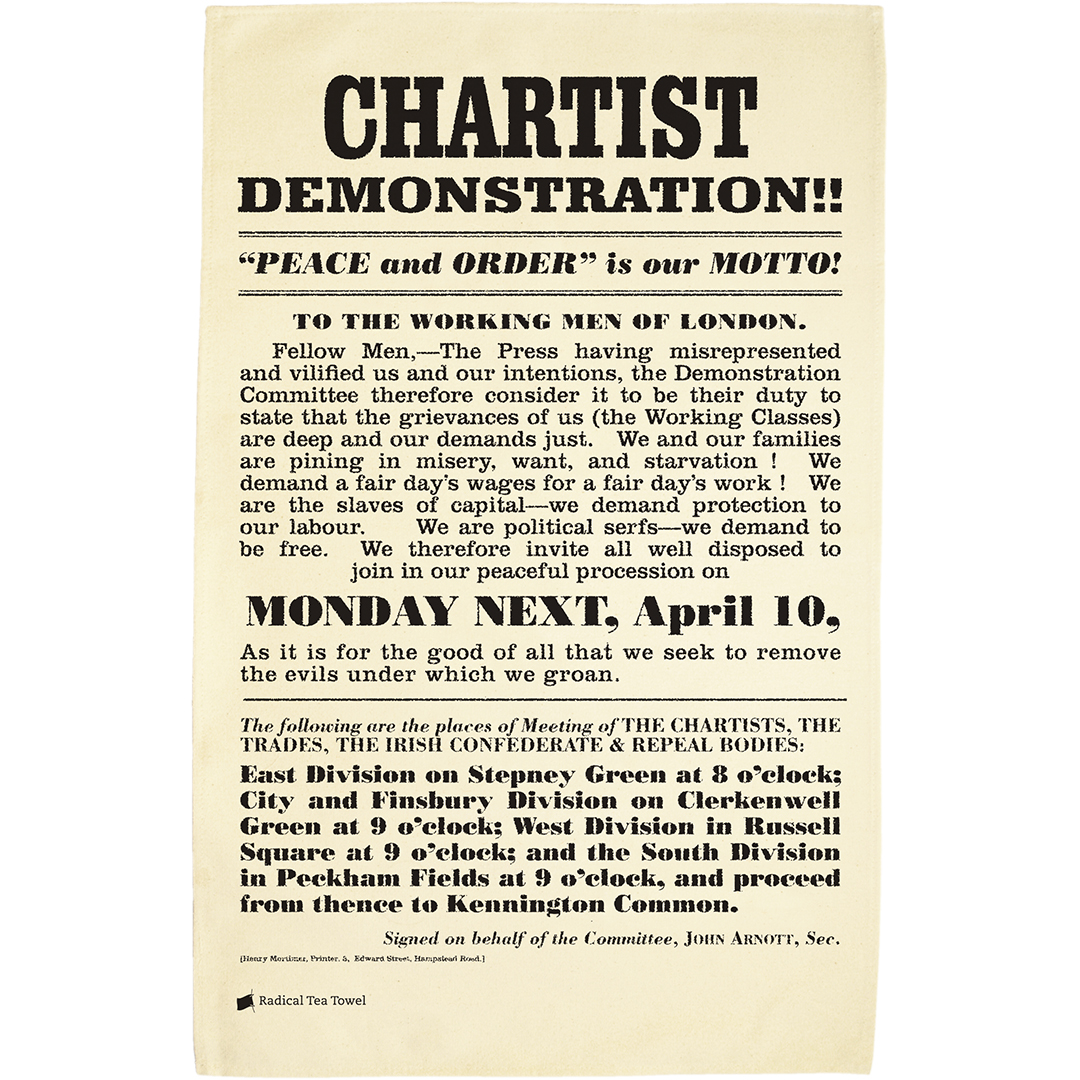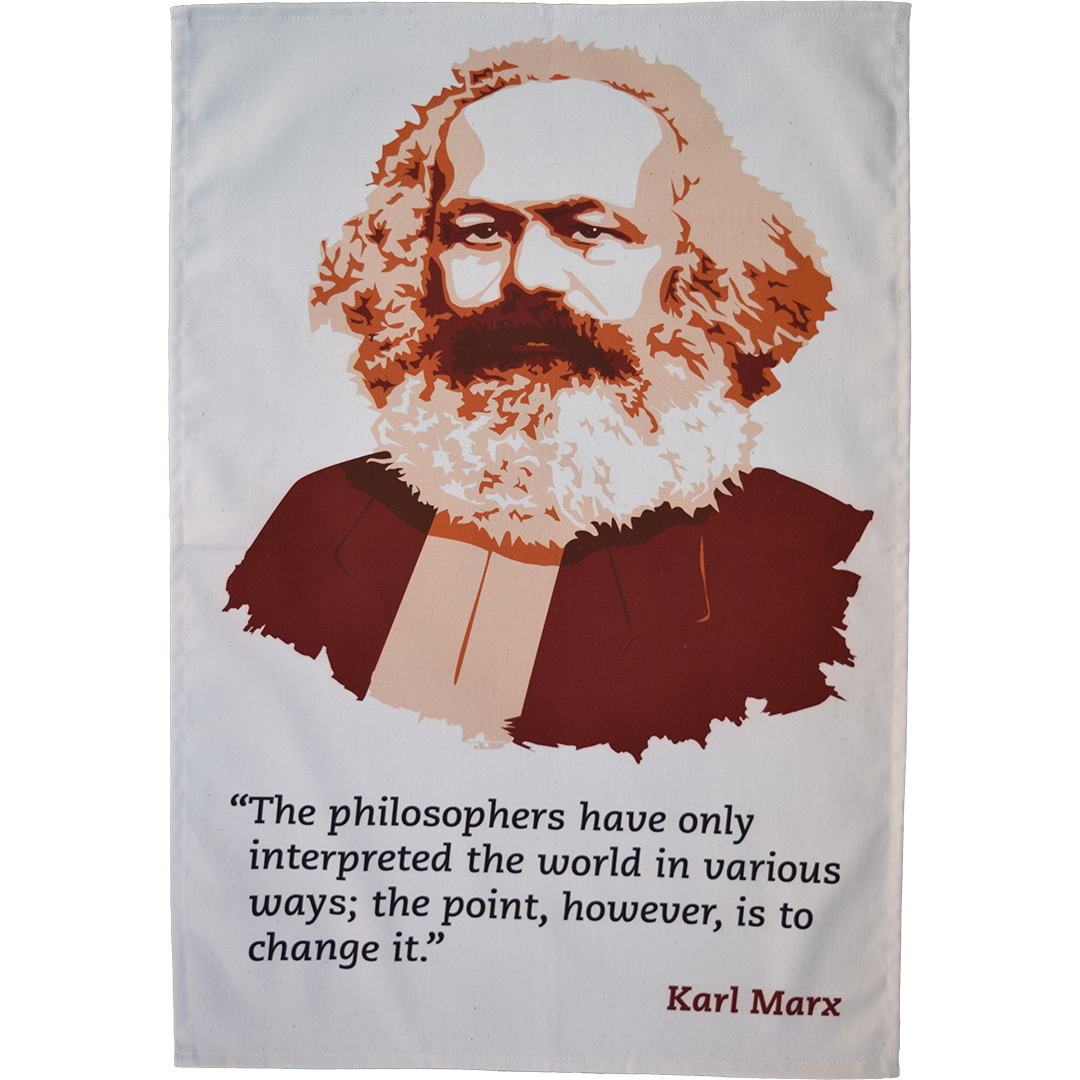Rise to Freedom: The Radical Life of Ernest Jones
Posted by Pete on 25th Jan 2023

Born on this day, Ernest Jones fought for democracy and freedom across the world
"Rise to freedom! Wake to hope!"
Born on the 25th of January, 1819, Ernest Charles Jones was one of the great nineteenth-century radicals: a supporter of Chartism in Britain and democracy the world over.
Jones was actually born in Berlin. His dad was a Major in the British Army, posted to the Prussian government.
The family returned to England in 1838, when Ernest was already a young man.
He trained as a barrister – not the most rebellious career choice – but it wasn’t long before he was knee-deep in radical politics.

Named after their People's Charter, the Chartists fought for democracy in England and abroad
Click to view our People's Charter tea towel
The 1840s were a rowdy decade in Europe.
Economic crises combined with the spread of democratic and socialist politics among the working class. Many countries were on the brink of revolution.
England was still a deeply undemocratic society, and hardly anyone was allowed to vote.
Chartism fought to change this, campaigning for universal male suffrage. Ernest Jones joined the movement in 1846.
He campaigned alongside activists like the Irishman
Feargus O'Connor and the English republican George Julian Harney.
But while most of continental Europe was about to rise up in the
1848 “springtime of peoples”, Chartism in Britain was declining. Its heyday was over by the mid-1840s.
The 1848 Chartist demonstration on Kennington Common was one of the last mass meetings organised by Chartist leaders calling for electoral reform
Click to view our Chartist Demonstration tea towel
This predicament sheds some light on Ernest Jones’ internationalism. He knew that the weakness of the democratic movement in Britain might be overcome by alliance with similar movements elsewhere.
The oppression of the working class transcends the narrow borders of nation states. So, too, must the struggle for liberation.
Chartism had been an internationalist movement from the outset.
Much of its base – and key leaders like Feargus O’Connor – were Irish radicals, and Chartists like Jones came to link the causes of working-class enfranchisement and Irish national liberation.
In 1848, Jones was imprisoned for two years on charges of sedition for supporting the Irish cause.
As the British government looked nervously at revolutions across Europe, Jones gave a rousing speech to a largely Irish crowd of workers in East London, backing Irish independence.
He promised that:
“The green flag of Chartism will soon be flying over Downing Street.”
Later, he acted as the defence lawyer for a group of Irish Republican Brotherhood (IRB) members known as the ‘Manchester Martyrs’ – radicals who had attempted a prison break in Manchester.
The IRB – or ‘Fenians’ – were themselves a very internationalist organisation, with a huge support base in the Irish diaspora in the United States.
Clearly, 19th Century radicalism really did cross borders!
A close friend and collaborator, Karl Marx described Jones as "the most talented, consistent and energetic representative of Chartism."
Click to view our Karl Marx tea towel
But it wasn’t just in Ireland that Jones agitated against British colonial rule. He also campaigned for Indian Independence, publicly supporting the Great Rebellion of 1857.
Alongside his work as a Chartist, Jones was a member of the socialist First International, an organisation that aimed to unite various socialist, communist and anarchist groups from across the world.
During their exile in England,
Karl Marx and Friedrich Engels were two of the First International’s leading figures.
This was yet another setting in which Jones’ radical internationalism could flower.
Along with George Harney, Marx, and most other members of the International, he enthusiastically supported the cause of Union victory and abolition in the
U.S. Civil War.
Our favourite radical movements from history are often those which recognise the interrelation of political struggles.
As Martin Luther King Jr. said, no one is free until we are all free.
Chartism was one such movement, with concerns ranging far beyond the civil and political rights of people in England.
Its struggle was one of anti-imperialism and international solidarity, across the British Empire and beyond.
Few captured this global scope better than Ernest Jones.


